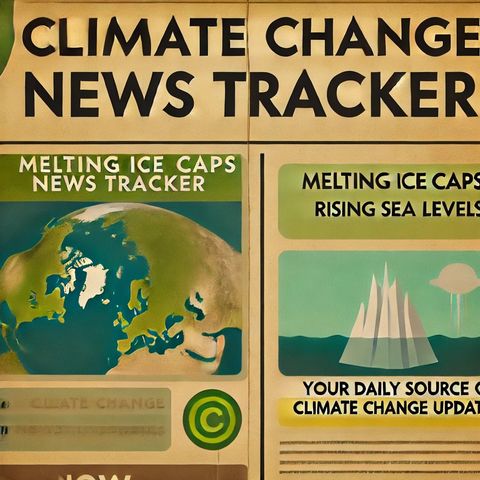NASA Partners with Alaska CASC to Empower Tribal and Indigenous Climate Adaptation

Download and listen anywhere
Download your favorite episodes and enjoy them, wherever you are! Sign up or log in now to access offline listening.
NASA Partners with Alaska CASC to Empower Tribal and Indigenous Climate Adaptation
This is an automatically generated transcript. Please note that complete accuracy is not guaranteed.
Description
NASA has initiated a promising collaboration with the Alaska Climate Adaptation Science Center (CASC) and other key entities to enhance the accessibility and applicability of its climate data tools for...
show moreThe UNBOUND-FEW workshop series was a concerted effort to bridge the gap between the vast troves of data available through NASA's resources and the unique needs of indigenous communities that are often on the front lines of climate change. The series was facilitated by the Tribal Resilience Learning Network of the Alaska CASC, highlighting their integral role in fostering local knowledge and resilience.
Key recommendations from the workshop report focus on tailoring NASA's data tools to meet the specific climatic and environmental challenges faced by these communities. For instance, recommendations emphasize the importance of incorporating indigenous knowledge and perspectives into data interpretation, which is critical for ensuring that the tools resonate with local realities and cultural contexts. This includes adapting data sets and models to reflect traditional environmental understandings, which often offer insights into sustainable practices that have been honed over countless generations.
Another pivotal recommendation was enhancing the user-friendliness of NASA's climate tools. Many indigenous communities face logistical and technological barriers that can hinder their ability to fully leverage advanced data systems. Simplifying interfaces, ensuring easy language translation, and providing robust support and training programs were suggested as vital steps towards inclusivity.
A significant outcome from the collaboration is the development of partnerships that are not only interdisciplinary but also deeply rooted in mutual respect and understanding. By involving Tribal leaders and indigenous organizations in the co-creation of these tools, NASA and its partners hope to foster trust and encourage active participation. This collaborative approach is essential not only for adapting to changing climates but also for empowering communities to advocate for their own needs and priorities in global climate discussions.
Furthermore, the report acknowledges the critical need for ongoing dialogue and feedback loops. Establishing channels for continuous engagement assures that these data tools remain dynamic and responsive to evolving conditions and insights from indigenous communities. This forward-thinking approach places a premium on adaptability and resilience, both in terms of technology and in human networks.
Through these efforts, NASA and the Alaska CASC aim to set a precedent for how powerful scientific resources can be democratized and localized. The ultimate goal is to build towards a future where all communities, especially the most vulnerable and historically marginalized, have access to the data and tools necessary to make informed decisions and advocate effectively for their environmental futures.
In summary, the partnership between NASA and indigenous communities, as evidenced by the UNBOUND-FEW workshop series report, represents a critical step forward in making cutting-edge climate science accessible and actionable. By investing in culturally sensitive, community-driven approaches, these collaborations hold the promise of not only enhancing climate resilience but also enriching the broader scientific understanding of climate impacts and solutions.
Information
| Author | QP-4 |
| Organization | William Corbin |
| Website | - |
| Tags |
Copyright 2024 - Spreaker Inc. an iHeartMedia Company

Comments